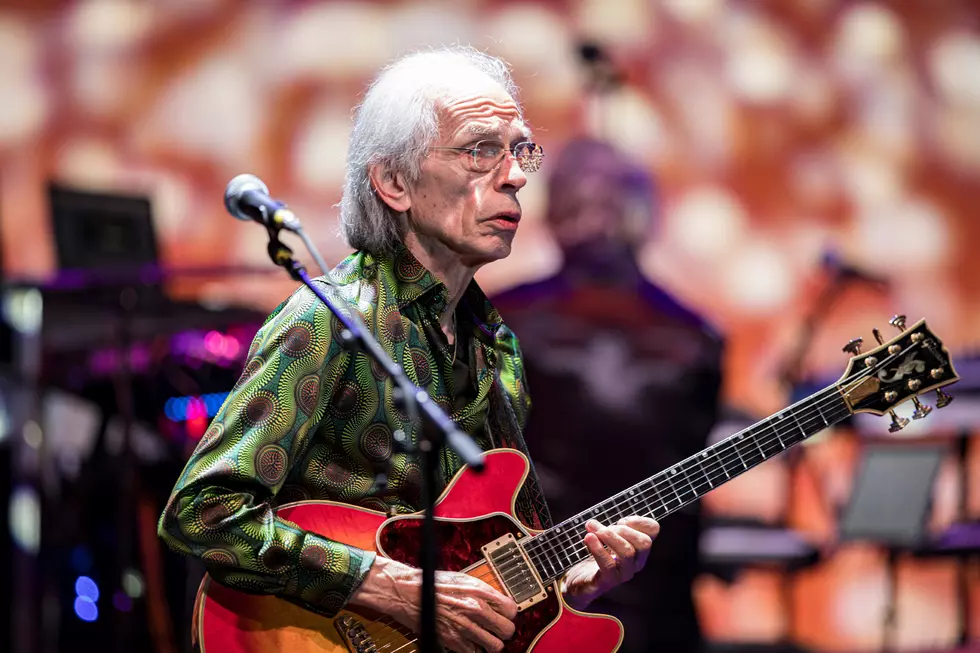
Yes Co-Founder Chris Squire Dies
Chris Squire, stalwart co-founder of Yes, has died, bandmate Geoff Downes confirms via Twitter. The 67 year old had announced a hiatus from the band in May, following a diagnosis of acute erythroid leukemia.
"Utterly devastated beyond words to have to report the sad news of the passing of my dear friend, bandmate and inspiration Chris Squire," says Downes, who appeared on three Yes studio albums with the bass-playing legend – 1980's Drama, 2011's Fly From Here and 2014's Heaven and Earth.
Squire was the only constant in a band that began evolving almost as soon as it was founded in advance of a self-titled 1969 debut. Yes' Aug. 7 concert with Toto will mark the first-ever without him.
Yes later released a statement that marks Squire's sad passing:
It’s with the heaviest of hearts and unbearable sadness that we must inform you of the passing of our dear friend and Yes co-founder, Chris Squire. Chris peacefully passed away last night in Phoenix Arizona, in the arms of his loving wife Scotty.
For the entirety of Yes’ existence, Chris was the band’s linchpin and, in so many ways, the glue that held it together over all these years. Because of his phenomenal bass-playing prowess, Chris influenced countless bassists around the world, including many of today’s well-known artists. Chris was also a fantastic songwriter, having written and co-written much of Yes’ most endearing music, as well as his solo album, Fish Out of Water.
Outside of Yes, Chris was a loving h usband to Scotty and father to Carmen, Chandrika, Camille, Cameron, and Xilan. With his gentle, easy-going nature, Chris was a great friend of many … including each of us. But he wasn’t merely our friend: he was also part of our family and we shall forever love and miss him.
Squire's final work on Heaven and Earth helped that project to a Top 20 finish on the UK charts. Yes' best-selling albums include 1983's triple-platinum 90125 and 1971's double-platinum Fragile.
Born at the right time, on March 4, 1948, Squire's quickly developing musical genius was matched stride for stride by technology. He'd use a distinctive Rickenbacker 4001 electric to help redefine the role of the bass, even as he became Yes' undisputed leader.
"Our second album Time and a Word was where we first started to work with [new Yes engineer] Eddy Offord," Squire once told Ultimate Classic Rock. "He liked the way my tone was coming out of my Marshall 100-watt that I’d used ever since the beginning really, and the thing that he added to that by [using] certain compression and certain settings that he liked in the studio, so we just developed it really, from Time And A Word onwards and I suppose you could say that by the time we got to Fragile and "Roundabout," he’d really finessed the production of my bass sound."
Chris Squire's focus, beyond a lone 1975 solo effort called Fish Out of Water, was always on his band, as Yes released a total of 21 studio albums. He remained steadfastly in place until today, while the group – which has some 40 members, former members and occasional studio sidemen in its ranks – went through a series of lineup changes.
"It’s really more by default than design that that situation has occurred," Squire remembered. "I think that in a lot of those instances there has been a lot of members of the band who have decided that they wanted to leave mainly to pursue solo projects and in the case of Rick Wakeman, that happened three or four times where he’d leave and come back and with Jon Anderson, that’s happened in the past that he has gone off to do solo things and then come back to the fold. We must remember also that, of course, Alan White has also been there since 1972 when he came in, so he’s been a constant compadre of mine ever since then."
White is now Yes' longest-tenured member. Guitarist Steve Howe joined in 1970, beginning the first of what would become three separate stints. Billy Sherwood, a '90s-era contributor, has already been announced as Squire's replacement on the upcoming Yes tour. Squire is only the second member of Yes to have died, following fellow co-founder Peter Banks in 2013.
Remembering Other Rockers We've Lost in 2015
More From Ultimate Classic Rock









